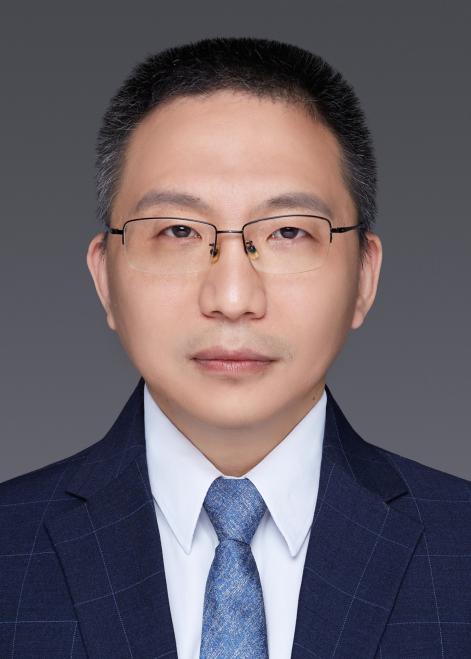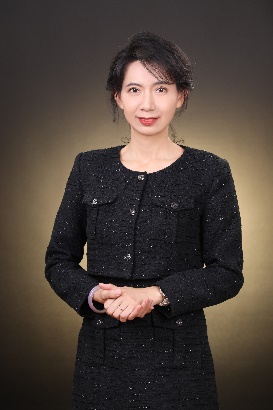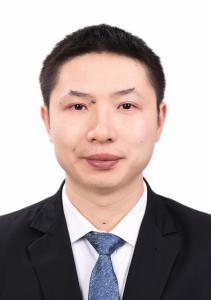Important Dates
Papers submission due:
Aug 25, 2024
Notification of acceptance:
Oct 8, 2024
Registration:
Oct 22, 2024
Conference Date:
Nov 01-03, 2024
Social Media
KEYNOTE SPEAKER
+ 查看更多
Witold Pedrycz, University of Alberta, Canada

Speech Title:
Knowledge-Data Environment of Machine Learning
Abstract:
Over the recent years, we have been witnessing truly remarkable progress in Machine Learning (ML) with highly visible accomplishments encountered, in particular, in natural language processing and computer vision impacting numerous areas of human endeavours. Driven inherently by the technologically advanced learning and architectural developments, ML constructs are highly impactful coming with far reaching consequences; just to mention autonomous vehicles, control, health care imaging, decision-making in critical areas, among others.
Data are central and of paramount relevance to the design methodology and algorithms of ML. While they are behind successes of ML, there are also far-reaching challenges that require urgent attention especially with the growing importance of requirements of interpretability, transparency, credibility, stability, and explainability. As a new direction, data-knowledge ML concerns a prudent and orchestrated involvement of data and domain knowledge used holistically to realize learning mechanisms and support the formation of the models.
The objective of this talk is to identify the challenges and develop a unique and comprehensive setting of data-knowledge environment in the realization of the development of ML models. We review some existing directions including concepts arising under the name of physics informed ML.
We investigate the representative topologies of ML models identifying data and knowledge functional modules and interactions among them. We also elaborate on the central role of information granularity in this area.
Bio of the Keynote Speaker Witold Pedrycz has long been engaged in the research of intelligent computing, information processing, fuzzy systems, artificial intelligence, genetic algorithms and other related fields, and has made important contributions to the research of intelligent learning, knowledge mining and representation of hybrid intelligent systems, and his research work has received wide attention and recognition from peers worldwide. He is a Fellow of IEEE, a Fellow of the Royal Society of Canada, and has served as the chairman or member of prestigious conferences in the field of intelligent computing such as IFSA/NAFIPS World Congress, IEEE Int. Conference on Fuzzy Systems, and IEEE Congress on Computational Intelligence in the past years. Since 2000, he has been the editor of many international journals such as IEEE Trans.
Data are central and of paramount relevance to the design methodology and algorithms of ML. While they are behind successes of ML, there are also far-reaching challenges that require urgent attention especially with the growing importance of requirements of interpretability, transparency, credibility, stability, and explainability. As a new direction, data-knowledge ML concerns a prudent and orchestrated involvement of data and domain knowledge used holistically to realize learning mechanisms and support the formation of the models.
The objective of this talk is to identify the challenges and develop a unique and comprehensive setting of data-knowledge environment in the realization of the development of ML models. We review some existing directions including concepts arising under the name of physics informed ML.
We investigate the representative topologies of ML models identifying data and knowledge functional modules and interactions among them. We also elaborate on the central role of information granularity in this area.
Bio of the Keynote Speaker Witold Pedrycz has long been engaged in the research of intelligent computing, information processing, fuzzy systems, artificial intelligence, genetic algorithms and other related fields, and has made important contributions to the research of intelligent learning, knowledge mining and representation of hybrid intelligent systems, and his research work has received wide attention and recognition from peers worldwide. He is a Fellow of IEEE, a Fellow of the Royal Society of Canada, and has served as the chairman or member of prestigious conferences in the field of intelligent computing such as IFSA/NAFIPS World Congress, IEEE Int. Conference on Fuzzy Systems, and IEEE Congress on Computational Intelligence in the past years. Since 2000, he has been the editor of many international journals such as IEEE Trans.
Professor Guan Gui, Nanjing University of Posts and Telecommunications

Speech Title:
Intelligent Signal Sensing and Recognition Techniques Towards 6G Physical Layer Security
Abstract:
The dawn of 6G wireless communication introduces a transformative era characterized by pervasive sensing and advanced intelligent identification, essential for ensuring physical security. This keynote speech highlights the integration of Artificial Intelligence (AI) and Deep Learning (DL) as pivotal in addressing the dynamic and complex challenges of 6G networks. We emphasize the role of AI in revolutionizing signal sensing and recognition. Our discussion centers on the application of these neural networks in enhancing signal detection, classification, and Specific Emitter Identification (SEI). By leveraging gradient-based optimization techniques, we demonstrate how ANNs can improve model and algorithm parameterization, leading to a data-driven approach that surpasses traditional rule based systems. This advancement is crucial in the physical layer of wireless communications, where intelligent signal recognition plays a key role in maintaining security and efficiency. We also explore the challenges faced by conventional model-based methods in the evolving landscape of 6G communication systems, which are marked by complex interference and uncertain channel conditions. DL emerges as a solution, offering innovative strategies for redesigning baseband module functionalities, including coding/decoding and detection processes. In conclusion, this keynote underscores the significance of integrating intelligent signal sensing and recognition with DL technologies in 6G networks. This approach not only enhances physical security but also paves the way for a more robust, efficient, and intelligent wireless communication ecosystem, capable of meeting the security demands of the future.
Bio of the Keynote Speaker Guan Gui (Fellow, IEEE) obtained his Ph.D. degree from the University of Electronic Science and Technology of China, Chengdu, China in 2012. He served as a Research Assistant and Post-Doctoral Research Fellow at Tohoku University from 2009 to 2014 before becoming an Assistant Professor at Akita Prefectural University in Japan from 2014 to 2015. Since then, he has been a Professor at Nanjing University of Posts and Telecommunications in China. Dr. Gui has published over 200 papers in IEEE journals/conferences with recent research interests including intelligence sensing and recognition, intelligent signal processing, and physical layer security. His contributions to intelligent signal analysis and wireless resource optimization have earned him fellowships with the IEEE, IET, and AAIA organizations along with several Best Paper Awards such as ICC 2017, ICC 2014, VTC 2014-Spring among others. In addition to these accolades for his work within academia thus far - which include being named one of the top two percent scientists worldwide by Stanford University between years spanning from '21-'23; receiving Clarivate Analytics' Highly Cited Researcher award for Cross-Field studies during that same time period; being recognized as one of Elsevier's Highly Cited Chinese Researchers between '20-'23; earning membership status alongside Global Activities Contributions Award honors back in '18 - Dr.Gui also received numerous awards related specifically towards editorial service: The Top Editor Award for IEEE Transactions on Vehicular Technology ('19), Outstanding Journal Service Award for KSII Transactions on Internet & Information System ('20), Exemplary Reviewer Award for IEEE Communications Letters ('17). Furthermore he was awarded both the Japan Society for Promotion of Science (JSPS) Postdoctoral Fellowship For Foreign Researchers back in '12 followed by their International Fellowship For Overseas Researchers six years later. He was appointed as the Jiangsu Specially-Appointed Professor in 2016, recognized as the Jiangsu High-Level Innovation and Entrepreneurial Talent in 2016, and honored as the Jiangsu Six Top Talent in 2018. Since 2022, he has held the esteemed position of Distinguished Lecturer at the IEEE Vehicular Technology Society.
Bio of the Keynote Speaker Guan Gui (Fellow, IEEE) obtained his Ph.D. degree from the University of Electronic Science and Technology of China, Chengdu, China in 2012. He served as a Research Assistant and Post-Doctoral Research Fellow at Tohoku University from 2009 to 2014 before becoming an Assistant Professor at Akita Prefectural University in Japan from 2014 to 2015. Since then, he has been a Professor at Nanjing University of Posts and Telecommunications in China. Dr. Gui has published over 200 papers in IEEE journals/conferences with recent research interests including intelligence sensing and recognition, intelligent signal processing, and physical layer security. His contributions to intelligent signal analysis and wireless resource optimization have earned him fellowships with the IEEE, IET, and AAIA organizations along with several Best Paper Awards such as ICC 2017, ICC 2014, VTC 2014-Spring among others. In addition to these accolades for his work within academia thus far - which include being named one of the top two percent scientists worldwide by Stanford University between years spanning from '21-'23; receiving Clarivate Analytics' Highly Cited Researcher award for Cross-Field studies during that same time period; being recognized as one of Elsevier's Highly Cited Chinese Researchers between '20-'23; earning membership status alongside Global Activities Contributions Award honors back in '18 - Dr.Gui also received numerous awards related specifically towards editorial service: The Top Editor Award for IEEE Transactions on Vehicular Technology ('19), Outstanding Journal Service Award for KSII Transactions on Internet & Information System ('20), Exemplary Reviewer Award for IEEE Communications Letters ('17). Furthermore he was awarded both the Japan Society for Promotion of Science (JSPS) Postdoctoral Fellowship For Foreign Researchers back in '12 followed by their International Fellowship For Overseas Researchers six years later. He was appointed as the Jiangsu Specially-Appointed Professor in 2016, recognized as the Jiangsu High-Level Innovation and Entrepreneurial Talent in 2016, and honored as the Jiangsu Six Top Talent in 2018. Since 2022, he has held the esteemed position of Distinguished Lecturer at the IEEE Vehicular Technology Society.
Professor Zuqing Zhu, University of Science and Technology of China

Speech Title:
Machine Learning in and for Optical Data-Center Networks
Abstract:
In the first part of this talk, we will first discuss the challenges on scalability, energy and manageability of data-center network (DCN) systems, and then explain why all-optical inter-connection can be a promising solution for future DCN systems. Next, we describe a novel all-optical inter-connection architecture based on arrayed waveguide grating router (AWGR) and wavelength-selective switches (WSS'), namely, Hyper-FleX-LION, explain its operation principle, and show experimental results of running distributed machine learning (DML) in a DCN in Hyper-FleX-LION. In the second part of this talk, we will explain how machine learning can be leveraged to realized knowledge-defined networking (KDN) and facilitate network automation in DCNs. Experimental results demonstrate that KDN can automatically reduce task completion time.
Bio of the Keynote Speaker Zuqing Zhu received his Ph.D. degree from the Department of Electrical and Computer Engineering, University of California, Davis, in 2007. From 2007 to 2011, he worked in the Service Provider Technology Group of Cisco Systems, San Jose, California, as a Senior Engineer. In January 2011, he joined the University of Science and Technology of China, where he currently is a Full Professor in the School of Information Science and Technology. He has published 360+ papers in peer-reviewed journals and conferences. He is the Steering Committee Chair of the IEEE International Conference on High Performance Switching and Routing (HPSR), and was the Chair of the Technical Committee on Optical Networking (ONTC) in IEEE Communications Society. He has received the Best Paper Awards from ICC 2013, GLOBECOM 2013, ICNC 2014, ICC 2015, and ONDM 2018. He is a Fellow of IEEE.
Bio of the Keynote Speaker Zuqing Zhu received his Ph.D. degree from the Department of Electrical and Computer Engineering, University of California, Davis, in 2007. From 2007 to 2011, he worked in the Service Provider Technology Group of Cisco Systems, San Jose, California, as a Senior Engineer. In January 2011, he joined the University of Science and Technology of China, where he currently is a Full Professor in the School of Information Science and Technology. He has published 360+ papers in peer-reviewed journals and conferences. He is the Steering Committee Chair of the IEEE International Conference on High Performance Switching and Routing (HPSR), and was the Chair of the Technical Committee on Optical Networking (ONTC) in IEEE Communications Society. He has received the Best Paper Awards from ICC 2013, GLOBECOM 2013, ICNC 2014, ICC 2015, and ONDM 2018. He is a Fellow of IEEE.
Professor Changsheng Li, Beijing Institute of Technology, China

Bio of the Keynote Speaker
Changsheng Li received the BE degree from the University of Electronic Science and Technology of China (UESTC), in 2008 and the PhD degree in pattern recognition and intelligent system from the Institute of Automation, Chinese Academy of Sciences, in 2013. He is a full research professor from the University of Electronic Science and Technology of China. He also studied as a research assistant with The Hong Kong Polytechnic University in 2009-2010. After obtaining his PhD, he once worked with IBM Research-China and iDST, Alibaba Group, respectively. His research interests include machine learning, data mining, and computer vision. He has more than 30 refereed publications in international journals and conferences.
INVITED SPEAKER
+ 查看更多
Professor Shan Liu,Communication University of China

Speech Title:
Research on Information Propagation Modeling and Control Guidance Strategies in Complex Networks
Abstract:
With the development of internet technology and the popularization of smart devices, media resources and the number of users are constantly increasing. The rapid and frequent dissemination of public opinion information related to emergencies, including false information, increasingly relies on media resource networks and their integration with user social networks. How to utilize the coupling relationship between media resource networks and user social networks to quickly and efficiently disseminate positive information and control the spread of harmful information has significant theoretical value and practical significance. Our researches mainly focus on information dissemination mechanisms, information dissemination models, information dissemination thresholds, and public opinion guidance strategies on multi-layer complex networks, etc. After years of continuous and in-depth research, we have achieved many meaningful research results.
Bio of the Invited Speaker Shan Liu is Professor and Chair of the Department of Intelligent Science at the Communication University of China. She received her Ph.D. degree in Electrical Engineering from Texas A&M University, College Station, Texas, USA, in 2013. She is a committee member of the Chinese Association for Artificial Intelligence, the Chinese Institute of Electronics, the Beijing Society of Image and Graphics, the Association of Fundamental Computing Education in Chinese Universities, the China Automation Society, the National Alliance of Artificial Intelligence and Big Data Innovation Industry in Colleges and Universities, and the Institute of Electrical and Electronics Engineers. She has served as a peer reviewer for a series of IEEE Transactions and other high-level SCI journals. Her current research areas include complex networks, intelligent tags, big data, and artificial intelligence. Prof. Liu has been invited to the University of California, the National Laboratory of the United States, and other countries such as France and Belgium to give lectures and speeches and has gained broad academic influence. She has presided over more than 30 research projects, such as the National Natural Science Foundation of China, the National Social Science Foundation of China, and the National Key Research and Development Program of China, published more than 100 high-level academic papers, and received multiple best paper awards.
Bio of the Invited Speaker Shan Liu is Professor and Chair of the Department of Intelligent Science at the Communication University of China. She received her Ph.D. degree in Electrical Engineering from Texas A&M University, College Station, Texas, USA, in 2013. She is a committee member of the Chinese Association for Artificial Intelligence, the Chinese Institute of Electronics, the Beijing Society of Image and Graphics, the Association of Fundamental Computing Education in Chinese Universities, the China Automation Society, the National Alliance of Artificial Intelligence and Big Data Innovation Industry in Colleges and Universities, and the Institute of Electrical and Electronics Engineers. She has served as a peer reviewer for a series of IEEE Transactions and other high-level SCI journals. Her current research areas include complex networks, intelligent tags, big data, and artificial intelligence. Prof. Liu has been invited to the University of California, the National Laboratory of the United States, and other countries such as France and Belgium to give lectures and speeches and has gained broad academic influence. She has presided over more than 30 research projects, such as the National Natural Science Foundation of China, the National Social Science Foundation of China, and the National Key Research and Development Program of China, published more than 100 high-level academic papers, and received multiple best paper awards.
Tong-Xing Zheng,Xi’an Jiaotong University

Speech Title:
Reconfigurable Intelligent Surface Empowered Physical Layer Security
Abstract:
6G wireless networks opens a new era of wireless communications from connected things to connected intelligence. The open integration and heterogeneous coexistence of 6G make network security an unprecedented significant and challenging issue. Physical-layer security (PLS), which achieves information secrecy by exploiting the intrinsic characteristics of wireless channels, has been recognized as a powerful approach for safeguarding wireless endogenous security for 6G. However, PLS is highly channel-dependent, which makes the achievable security performance heavily restricted by the quality of wireless channels. This talk will introduce a new PLS paradigm enabled by reconfigurable intelligent surface (RIS). RIS is an emerging metamaterial technology that can reconfigure electromagnetic signal propagation path by adjusting the signal amplitude and phase in a controllable manner, and has the potential to break through PLS bottleneck from channel restricted to channel reconstructed. This report will first introduce the background of PLS, after that the RIS-PLS paradigm will be described accompanying with some of our recent achievements, and finally several open issues will be discussed particularly including how artificial intelligence (AI) can be leveraged.
Bio of the Invited Speaker Tong-Xing Zheng received the B.S. degree in Information Engineering and Ph.D. degree in Information and Communications Engineering from Xi’an Jiaotong University, Xi’an, China, in 2010 and 2016, respectively. From 2017 to 2018, he was a Visiting Scholar with the School of Electrical Engineering and Telecommunications, University of New South Wales, Sydney, Australia. He is currently an Associate Professor with Xi’an Jiaotong University. His research interests include B5G/6G emerging wireless technologies, physical layer security, covert communications, reconfigurable intelligent surface, integrated sensing and communications. He has published the book Physical Layer Security in Random Cellular Networks (Springer, 2016), two book chapters, and over 100 papers in telecommunications journals and conference proceedings. He was a recipient of the Excellent Doctoral Dissertation Award of Shaanxi Province in 2019, the First Prize of Science and Technology Award in Higher Institution of Shaanxi Province in 2019 and 2023, the First Prize of Air Force First Aviation Creative Challenge in 2023, and the Best Paper Award at the 2023 International Conference on Ubiquitous Communication. He was honored as an Exemplary Reviewer of IEEE TRANSACTIONS ON COMMUNICATIONS in 2017, 2018, and 2021. He was a Leading Guest Editor of FRONTIERS IN COMMUNICATIONS AND NETWORKS in 2021 and a Guest Editor of WIRELESS COMMUNICATIONS AND MOBILE COMPUTING in 2018. He served as a Session Chair for the IEEE ICC 2022 and IoTCIT 2024. He has served as a TPC member for various IEEE sponsored conferences, including the IEEE GLOBECOM, ICC, WCNC, VTC, and PIMRC.
Bio of the Invited Speaker Tong-Xing Zheng received the B.S. degree in Information Engineering and Ph.D. degree in Information and Communications Engineering from Xi’an Jiaotong University, Xi’an, China, in 2010 and 2016, respectively. From 2017 to 2018, he was a Visiting Scholar with the School of Electrical Engineering and Telecommunications, University of New South Wales, Sydney, Australia. He is currently an Associate Professor with Xi’an Jiaotong University. His research interests include B5G/6G emerging wireless technologies, physical layer security, covert communications, reconfigurable intelligent surface, integrated sensing and communications. He has published the book Physical Layer Security in Random Cellular Networks (Springer, 2016), two book chapters, and over 100 papers in telecommunications journals and conference proceedings. He was a recipient of the Excellent Doctoral Dissertation Award of Shaanxi Province in 2019, the First Prize of Science and Technology Award in Higher Institution of Shaanxi Province in 2019 and 2023, the First Prize of Air Force First Aviation Creative Challenge in 2023, and the Best Paper Award at the 2023 International Conference on Ubiquitous Communication. He was honored as an Exemplary Reviewer of IEEE TRANSACTIONS ON COMMUNICATIONS in 2017, 2018, and 2021. He was a Leading Guest Editor of FRONTIERS IN COMMUNICATIONS AND NETWORKS in 2021 and a Guest Editor of WIRELESS COMMUNICATIONS AND MOBILE COMPUTING in 2018. He served as a Session Chair for the IEEE ICC 2022 and IoTCIT 2024. He has served as a TPC member for various IEEE sponsored conferences, including the IEEE GLOBECOM, ICC, WCNC, VTC, and PIMRC.